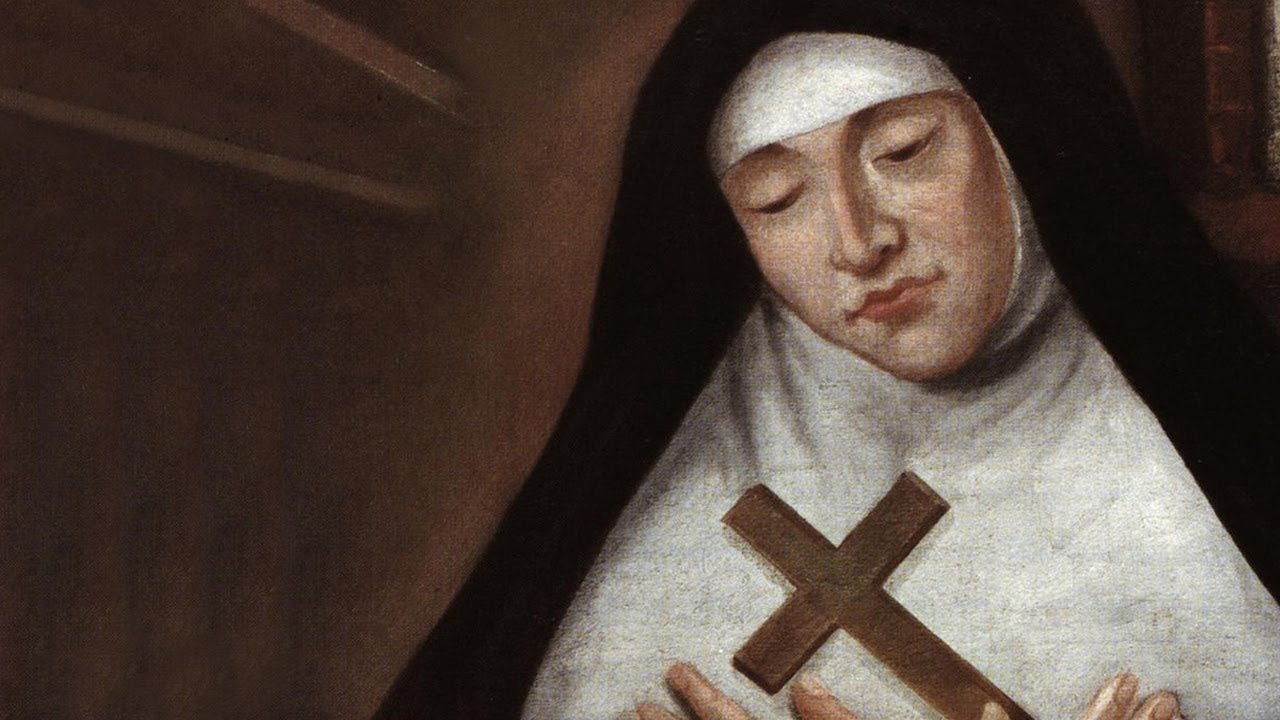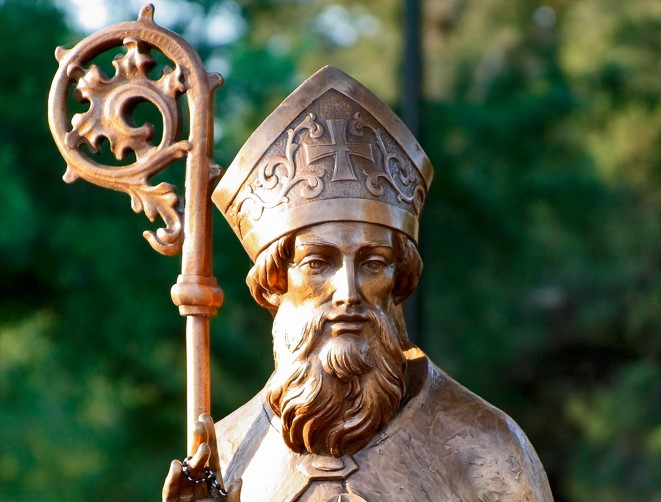
THE MEMORIAL OF STE. MARIE DE L’INCARTION

Sometimes reading the lives of the saints leaves us more conflicted than inspired. This is especially the case when the saint lived in a time and culture very removed from our own where values and practices are not only foreign to us but where they may no longer be regarded as values. For me, this was the case with Marie Guyart – mystic, writer, business woman, cloistered nun, mother and teacher – born in Tours, France on October 28, 1599.
Cautionary tales warning parents of the dangers of imposing a professional path on a child are common. To flourish, a child must be allowed to follow the deepest desires of their hearts – what we might regard as the Holy Spirit’s guidance. Imposition of a life path on a child rarely goes well. Such, it seems was the case of Marie de l’Incarnation. From her youngest days, she felt a spiritual calling to devote herself entirely to God. At the age of fourteen she asked her parents for permission to enter the Benedictines. They thought this impractical and insisted she marry. The marriage was a failure. Her husband died after only two years leaving her with a bankrupt business and a child, Claude, whom she was unable to care for.
Marie left her son with a wet-nurse and retreated to the top floor of her parents’ home. The call to contemplation remained strong but she was not free to pursue it because her family needed her. She took back her son but “refrained from showing him too much affection” because she knew in her deepest being she would eventually be leaving him again. She assisted her sister and brother-in-law by managing their failing transportation business until it was solidly thriving.
Finally, in 1631, she made the decision to enter religious life. Leaving her son in the care of her sister and brother-in-law, she joined cloistered Ursuline Sisters and adopted her new name of Marie de l’Incarnation. At this time, Marie began to read accounts of the work of the Jesuit missionaries in Canada. Throughout her life Marie had experienced visions and at this point, those visions directed her to move to Canada as a missionary.
In 1639, she and two companion sisters arrived in Quebec City where they established a convent and a school for girls. A primary focus was to educate Indigenous girls. “Education” meant stripping them of all that made them indigenous – culture, religion, language, dress – and preparing them for marriage to French colonizers.
How do we read this life as holy in today’s context? As we prepare for Pope Francis to come to Canada, to apologize for the devastation caused by the Church’s participation in colonial practices of cultural genocide, it is painful to read about Catholic missionaries like Ste. Marie. Though she may have been a woman of holiness, she participated in something that can only be described as evil today. The lesson to be learned? I am not sure. Certainly, one lesson is that holiness does not preclude our participation in social sin. In this and other stories of our past I see how horribly blinded otherwise good people with good intentions can be by cultural biases. We are all a product of our time and place. So, we must feed in ourselves a questioning, critical, prophetic stance not only toward secular culture but also the culture of our church. How have we internalized racism, sexism and a litany of other “isms”? How have we embedded it in our church and community?
As well, as an adoptive mother and as the child of a mother who gave up her first daughter, I am poignantly aware of the incredible pain that women who surrender their children experience. They do a lifetime of penance for these decisions. However, I have also witnessed how scarring it can be for a person to be raised by a parent who was never called to parenting. Parenting is the most wonderful and difficult vocation in the world. The surrender of Marie’s son, Claude, though certainly wrought with pain for both of them, may have been an act of the greatest love. Even if that act is hard for a person with true a vocation to parenthood to comprehend.
Ste. Marie de l’Incarnation died in Quebec City on April 30, 1672. She was canonized by Pope John Paul II on October 12, 2014. In memorializing her life, let us pray for the vision to see the ways in which we, despite our desire to live lives of holiness, find ourselves trapped in social sin. Let us pray for the humility and repentant hearts we need to move out of our internalized prejudices. Let us pray for personal and communal conversion.
Christine Way Skinner is a lay minister and author. She received a Bachelor of Arts in Theology degree from St. Francis Xavier University and a Master of Divinity from Harvard Divinity School. She is currently working on a Doctorate in Theology at St. Michael’s College in Toronto. Christine loves trying to find inclusive, compelling and creative ways to pass on the church’s 2000 year old traditions. She enjoys exploring the arts, gardening and engaging conversations. Christine’s numerous publications can be found and purchased here.


